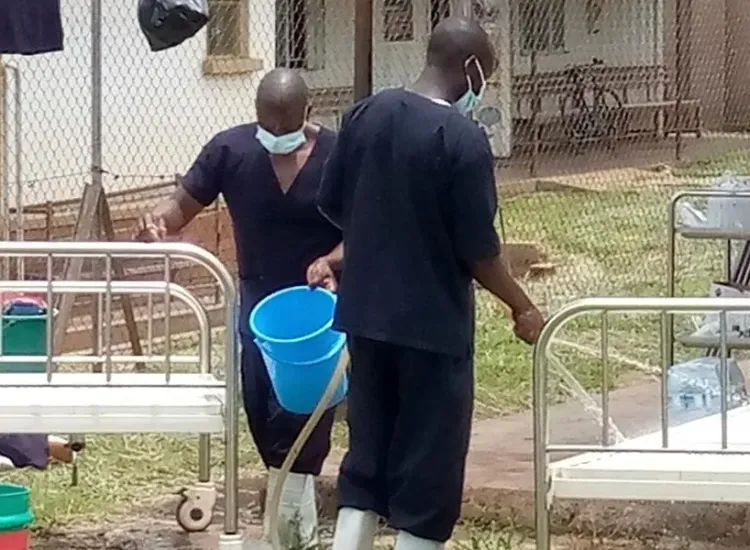Uganda Receives 2,000 Monkeypox Vaccine Doses from Africa CDC

Synopsis
Key Takeaways
- Uganda is launching a monkeypox vaccination campaign.
- 2,000 doses received to protect high-risk individuals.
- Monkeypox outbreak confirmed in August with over 1,700 cases.
- Cholera cases in Uganda have also increased to 67.
- Health officials emphasize hygiene to prevent disease spread.
Kampala, Jan 17 (NationPress) Uganda has been provided with 2,000 doses of monkeypox vaccine from the Africa Centers for Disease Control and Prevention (Africa CDC) for an upcoming prevention initiative set to commence next month, as confirmed by a senior official from the government on Friday.
According to Ugandan Minister of Health Jane Ruth Aceng, these vaccines will be sufficient to immunize approximately 1,000 individuals who are at high risk of contracting this highly contagious viral illness.
“The vaccination campaign will focus on high-risk groups, including close contacts of confirmed cases and frontline health workers active in regions experiencing transmission,” Aceng stated.
Since the outbreak was identified in August, Uganda has reported 1,712 laboratory-confirmed monkeypox cases and 10 fatalities, with most deceased individuals having pre-existing health issues like HIV/AIDS, malnutrition, diabetes, and sickle cell disease.
As per the Ministry of Health, at least 1,089 individuals have successfully recovered and been discharged from treatment facilities.
Aceng reassured tourists, investors, and traders that Uganda is safe for travel and business, while encouraging citizens to stay alert and report any suspected cases to healthcare facilities, as reported by Xinhua news agency.
In August, the World Health Organization classified monkeypox as a public health emergency of international concern, raising alarms about its potential for further global spread.
Monkeypox is a disease caused by the monkeypox virus, transmitted through close contact, with symptoms that include fever, lymph node swelling, sore throat, muscle discomfort, skin rashes, and back pain.
In another health concern, Uganda has seen cholera cases rise to 67 since the outbreak was declared in the northern region on January 7, according to the Ministry of Health.
Daniel Kyabayinze, Director of Public Health at the Ministry, shared that of the 67 cases, seven are laboratory-confirmed, while the remainder are suspected cases.
All reported cases are from the northern border district of Lamwo, with 21 individuals still hospitalized and the rest discharged, as one death has been recorded.
It is suspected that the cholera outbreak may have originated from neighboring countries.
“The disease has proliferated due to poor sanitation and the use of contaminated water in areas lacking sufficient latrines and toilets,” Kyabayinze remarked.
“We have lost one life to cholera. Effective treatment requires extensive rehydration. We urge the public to maintain proper hygiene, boil their water, and seek medical attention for suspected cases,” he added.
Cholera is a serious illness that can result in severe acute watery diarrhea and rapid dehydration, according to the World Health Organization.










